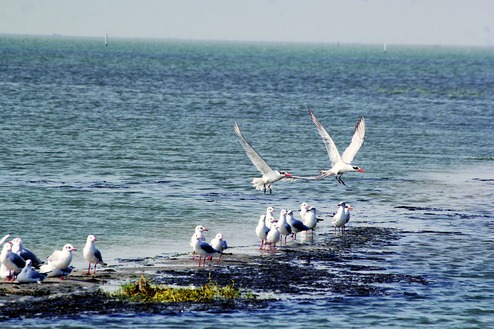
Bhubaneswar: Five new artificial islands are being prepared for migratory birds visiting to the Chilika lake.
Officials of the Chilika Development Authority said the new islands would be ready for the winged guests by this winter.
Additional chief executive of the development body Sasmita Lenka said each of the islands would be built on around 2 to 2.5 hectares. "The silt generated in the dredging of Balugaon channel is being spread in the lake area to create the islands. We will also undertake plantation on the new islands. The artificial islands will come up on both sides of the Balugaon channel," said Lenka.
The development body decided to come up with the idea of creating the artificial islands after the Bombay Natural History Society, a wildlife research organisation, had recommended creating another island at Chilika for providing more area for roosting and foraging for the migratory bird species to the lake. The organisation, which had conducted a research on the migratory birds between 2001-02 and 2014-15, also recommended the authorities to undertake habitat improvement or restoration for the birds.
The society had, in its report to the state government last year, stated that the Nalabana Island, which has been declared as a wildlife sanctuary since 1987 and spread over 15.2sqkm, was too small for the entire population of birds to forage daily.
Nalabana is the only legally protected area in the Chilika lake.
"The artificial islands will have sufficient prey for the migratory birds, and we will also sensitise local people and tourists not to disturb the winged guests. Besides, we will also deploy our men to guard these islands to prevent poaching of birds," said Lenka.
The Chilika lake receives migrants from a wide range of breeding grounds extending from north, central and east Siberia, China and Mongolia, and west Asian countries such as Kazakhstan. The annual bird census conducted in January had revealed 8.93 lakh birds belonging to 147 species of thronging the lake in the winter.











